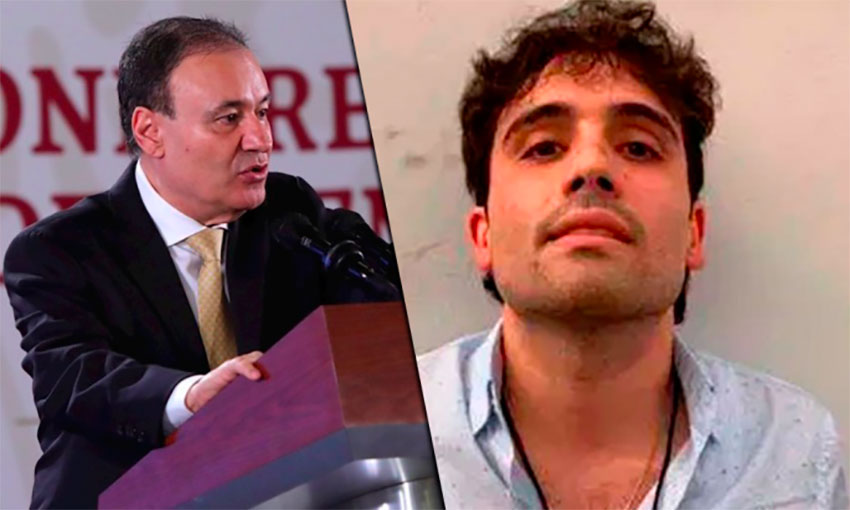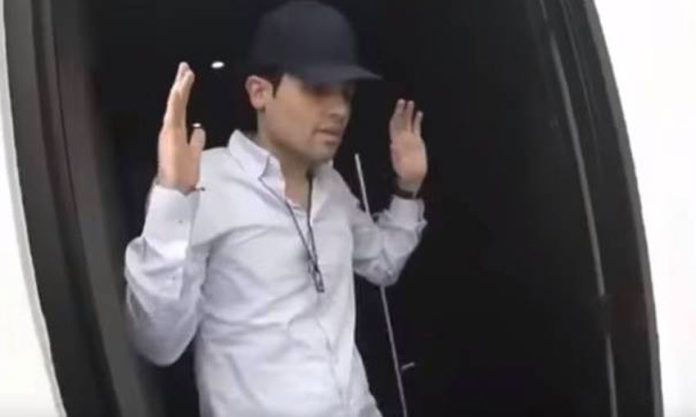President López Obrador said Friday that he personally ordered the release of one of the sons of convicted drug trafficker Joaquín “El Chapo” Guzmán after he was detained in a security operation in Culiacán, Sinaloa, last fall.
It was the third version of the story behind the October 17 operation, which was widely regarded as having been botched.
The arrest of Ovidio Guzmán López, allegedly a leader of the Sinaloa Cartel, triggered a wave of cartel attacks that terrorized residents of the northern city. To prevent widespread loss of life amid the unprecedented show of force, a decision was taken to free the suspected narco, who is wanted on trafficking charges in the United States.
At the time, Security Secretary Alfonso Durazo said the decision to release Guzmán López and withdraw security forces was made by military personnel at the scene.
Version two followed the day after when López Obrador said his security cabinet took the decision to release Guzmán López and that he supported it.

On Friday, he offered a third version of events at a press conference in Cuernavaca, Morelos.
“I ordered that the operation be stopped and that the presumed criminal be set free,” López Obrador said, asserting that more than 200 innocent people would have been killed had he not taken the decision.
The government was widely criticized for it even though it may well have avoided a bloodbath in Culiacán, where at least 14 people were killed in the show of force by the cartel.
Security experts and others contended that the government simply folded when confronted with the overwhelming firepower of the Sinaloa Cartel. Prominent security analyst Alejandro Hope said at the time that the Sinaloa Cartel had been allowed to give a slap in the face to the Mexican state.
López Obrador’s admission that he ordered Guzmán López’s release triggered renewed criticism of the military operation and speculation about which version of events was in fact true.
“On October 18, 2019, the president of the republic asserted that the decision [to release Guzmán López] had been taken … by the security cabinet and that he simply supported it. The two versions cannot be simultaneously true,” Hope wrote on Twitter.
Independent Senator Emilio Álvarez Icaza accused López Obrador of “cowardice” for not initially owning up to the decision he apparently took.
“The truth is that it’s a belated confession and I believe that it has little civic value,” he said.
“At the time he hid it, he shifted responsibility to his collaborators,” Álvarez said, charging that the president had shown a lack of solidarity with his security team.
The senator also said that the events in Culiacán represented a “before and after” for the federal government in terms of its security strategy.
“If he [López Obrador] thinks that he will recover the confidence lost, … he’s mistaken,” Álvarez said.
Questions about the president’s relationship with the Guzmán family surfaced after he greeted El Chapo Guzmán’s mother during a brief encounter on the street in Badiraguato, Sinaloa, in March.
Last year was the most violent on record and homicide statistics for the first five months of this year show that 2020 is on track to be even more murderous.
Source: El Universal (sp), Reforma (sp)
